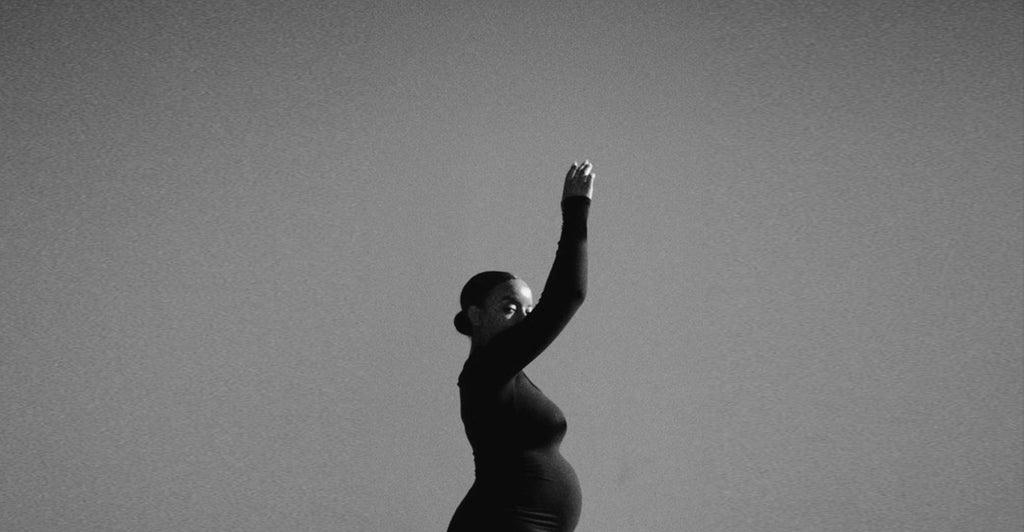“Fascism: its most advanced form is here in Amerika.” - George Jackson
Just a few weeks ago on June 24, 2022, the United States of America witnessed a historic Supreme Court ruling that shattered the faith of millions when it came to their trust in the system as being fair and equitable. Roe v. Wade, a landmark decision that expanded the constitutional right to medical privacy and also established the right to an abortion, was overturned.
In response, thousands of angry and shocked American citizens took to the streets in protest, demanding that their rights be restored and asking why a small group of nine people were allowed to have precedence over what millions could do with their bodies. Many of course, also asked how we as a nation even got to this point. People wondered how, after what seemed like decades of building towards a more progressive world, we seemed to revert back to the past so suddenly. After all, weren’t we making amazing strides as a country towards life, liberty, and the pursuit of happiness?
While some may answer a resounding “yes” to that question, many who have often historically been on the margins of society see things differently. Though the overturning of Roe v. Wade is an absolute tragedy for millions of people across the country who are entitled to their autonomy, this event is just the tip of the iceberg for Black women who have constantly had their reproductive rights violated for centuries. Many see the loss of Roe as the beginning of the end, but for us, it was just another day of dealing with the ins and outs of American fascism.
For many us, the fictional novel of The Handmaid’s Tale has long been a harsh reality.
This is not the first time that Black women have had their reproductive rights taken away by the state. In her 1997 book Killing the Black Body: Race, Reproduction, and the Meaning of Liberty, sociologist Dorothy E. Roberts details the ways in which Black women have been stripped of their liberties for a number of reasons. She puts an emphasis on the fact that Black women have repeatedly been the targets of reproductive injustice going all the way back to the days of African enslavement. How Black women were treated during this time laid the foundation for policies and practices that were later put in place by the state in order to deny them what should have been their constitutional rights. Roberts writes, “Every indignity that comes from the denial of reproductive autonomy can be found in slave women’s lives—the harms of treating women’s wombs as procreative vessels, of policies that pit a mother’s welfare against that of her unborn child, and of government attempts to manipulate women’s childbearing decisions through threats and bribes.”
During the period of enslavement, Black women were regularly forced to procreate and have children for the sake of providing their masters with the means of labor in order for them to secure capital. Instead of choosing motherhood on their own as most women would prefer, motherhood became a byproduct of Black women’s bondage and another means of controlling them. In the eyes of plantation owners, Black women were not having children, but rather reproducing the labor force for the sake of profits. Furthermore, because the ability to procreate was seen as vital for survival of plantations and for slavemasters to make money, women who struggled with infertility were often punished or seen as less valuable because of their inability to provide plantations with laborers. Seen as damaged goods by their masters, infertile women were often given extra labor, or sold off to buyers who were unaware of their condition.
Years later after slavery, when Black women weren’t being forced to reproduce for the sake of profits, they were being stripped of their right to have children. During the Eugenics movement of the late nineteenth and early twentieth century, thousands of Black women were sterilized by physicians around the United States, oftentimes without their consent or even their knowledge. According to an article from Berkeley Political Review titled, “America’s Forgotten History of Sterilization,” Black women, along with Native American and Latina women, faced disproportionate levels of sterilization and reproductive abuse from the state. One of the most notorious states to enforce a eugenics program was North Carolina, which ran a eugenics board for 45 years between 1929 and 1974. The article states, “in North Carolina in the 1960s, Black women made up 65 percent of all sterilizations of women, although they were only 25 percent of the population.”
Now in 2022, Black women are still enduring the trials and tribulations that come with their reproductive health being on the line.
When it comes to death due to pregnancy-related complications, Black women are three times more likely to face maternal mortality when compared to white women. In the United States alone, the estimated mortality rate is about 17 per 100,000 live births. However, this number is 43 out of 100,000 for Black women. To make matters worse, many of these pregnancy-related deaths are very much preventable but still occur oftentimes due to implicit bias and medical racism in the healthcare system.
According to a December 2021 article from the Population Reference Bureau on racial disparities in pregnancy and postpartum, many of the causes of death for Black mothers were things like postpartum cardiomyopathy (a form of heart failure), preeclampsia, and eclampsia. Furthermore, this research showed that Black women suffered from these complications at a mortality rate that is five times higher than white women. With Roe v. Wade now being overturned, many doctors are predicting that the maternal mortality rate for Black women is only going to further increase. Since many states are now banning abortion, many women, especially low-income Black women, are now going to be facing the possibility of having to carry dangerous pregnancies to term with no means of a way out.
And, while President Biden has recently signed an executive order in attempt to protect forms of reproductive care such as abortions and contraceptives, this still doesn’t take away from the fact that Roe’s overturning will affect Black and Hispanic women disproportionately. Even prior to the Supreme Court striking down Roe, many low income women of color who lived in conservative states were already dealing with the consequences and repercussions that came with heavy restrictions on abortion access as well ass very limited access to birth control. These women were already dealing with their state’s abortion regulations and often cannot afford to travel across state lines in order to ensure that they have options.
Overall, while the loss of Roe v. Wade is indeed a national tragedy and a violation of the reproductive rights of people all across the country, it is crucial that we remind ourselves that the nature of this issue is nowhere near new. For many of our grandmothers, aunts, and mothers, a lack of bodily autonomy is a very real issue that has incessantly been a part of their life experiences. . And now, with global attention to the restoration of reproductive rights for folks everywhere, we must fight even harder to protect Black women and women of color.

About the Author:
Maryam Azeeza Muhammad is a poet, womanist, and journalism student from Bridgeport, CT currently attending Temple University in Philadelphia, PA.




JOIN THE DISCUSSION (0 comments)